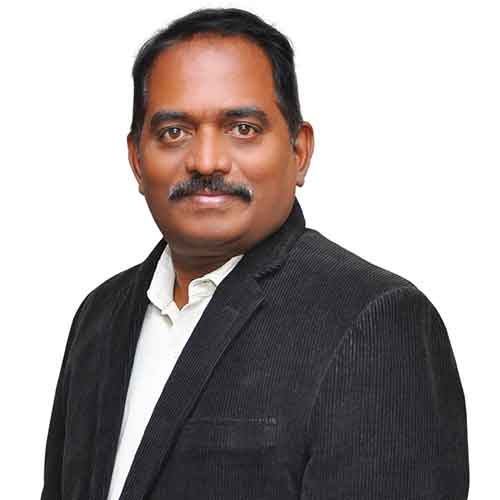K7 Computing hopeful about AI in curbing cybercrime rather than enabling it

K Purushothaman, CEO, K7 Computing
Enabling Digital Future
To create trust is essential in Cybersecurity and a lack of trust will definitely hamper the growth of digital services. K7 Computing helps to create this trust by providing robust cybersecurity solutions that keep users safe when availing digital services.
In Purushothaman’s words, “We enable secure browsing through heuristic URL analysis and cloud-based website reputation services. Emails are scanned for infected attachments and phishing attacks. Security of online transactions is maintained through a secure browser that ensures that shopping and banking services accessed by the customer are genuine. Our cybersecurity solutions for business protect against a wide range of malware ensuring that customers’ personal data is protected.”
K7 Computing works extensively with the partners to address three aspects of cybersecurity: tools, knowledge, and skills. K7 Computing has created cybersecurity products to cater to the needs of consumers, SOHO, SME, and large enterprise segments; covering servers, desktop/laptop and mobile devices; and across various platforms like Windows, Mac, Android, and iOS.
K Purushothaman depicts that, “We also offer AAA (Authentication, Authorisation, and Accounting) in hardware in the form of UTM (Unified Threat Management) appliances. We have also created a wide range of threat stopping tools.Our cybersecurity products have been awarded by international testing agencies including AV-Comparatives, AV-Test, and Virus Bulletin. We are the only Indian company that actively contributes to the Anti-Malware Testing Standards Organization (AMTSO), we are the first and only Indian company to join the Cyber Threat Alliance, and our founder is the first CEO of AVAR (Association of Anti-Virus Asia Researchers).”
Trends
In 2020, K7 Computing anticipates a growth in IoT, Cryptojacking, and Mobile threats, while Banking Trojans, Ransomware, Phishing, and Advanced Persistent Threats (APTs) will continue to be prevalent, fuelled by the easy availability of Exploit Kits.According to K Purushothamanthe prevalence of cyberattacks in Tier-1 cities is not unexpected but there is a growing concern about the level of cyberattacks in Tier-2 cities.
Purushothaman says, “It is alarming to see sophisticated and targeted attacks that do not need user interaction to infect systems. In addition, attacks that exploit weaknesses in RDP and VPN configurations continue to compromise networks. The explosion of mobile devices and other smart products, and the corresponding increase in data generation, point towards a trend of cyber threats that target data, ranging from simple attempts to grab data from an unsecured server to sophisticated AI-powered attacks.”
AI to control cybercrime
K Purushothaman explains that Artificial intelligence uses digital technology to mimic human intelligence at a scale and speed that humans cannot match. “Both cyber criminals and cybersecurity professionals will try to harness this technology for their benefit. Criminals will use AI to improve phishing attacks and create chat bots that can convince users that they are chatting with a human; deep fake videos could also be created to malign individuals and organisations; AI can also be used to guess passwords; perhaps most importantly, scaling a cyberattackcan become very easy with AI,” he comments.
He is hopeful and expects AI to help control cybercrime rather than enable it. “The cybersecurity industry will harness AI to identify patterns of suspicious transactions to stop fraud, identify anomalous behaviour on networks, block sophisticated phishing attacks and malicious websites, monitor hackers and hacking discussions online, and identify and stop deep fake videos before they spread. Scaling cyber defences, by analysing large volumes of data to identify threat patterns, will become easier with AI,” assumes Purushothaman.
Cybersecurity awareness
The average cost of a data breach in India is estimated to be Rs. 119 million. The proposed Personal Data Protection Act (PDPA) lays down severe penalties for such breaches. In K7 Computing they expect these to necessitate the acceleration of awareness and action on cybersecurity.
Raising security issues K Purushothaman concludes, “We also frequently conduct cybersecurity awareness programmes at schools, colleges, and enterprise locations, as well as training programmes to build a talent pool of cybersecurity professionals through the K7 Academy. K7 Labs researchers regularly present their research papers at international cybersecurity conferences such as Virus Bulletin, AVAR and CARO.”
See What’s Next in Tech With the Fast Forward Newsletter
Tweets From @varindiamag
Nothing to see here - yet
When they Tweet, their Tweets will show up here.






























